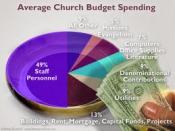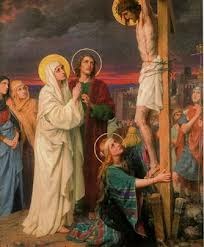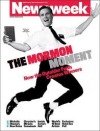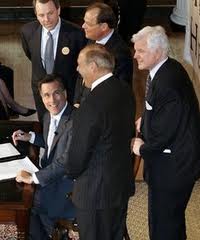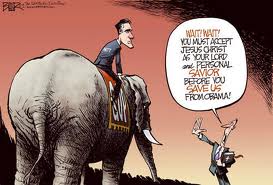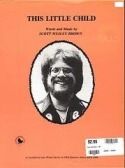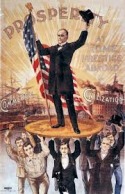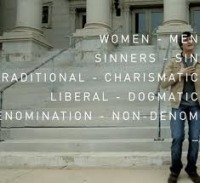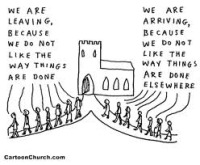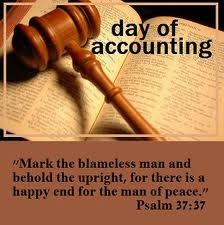 Preparing A Church For Rough Times
Preparing A Church For Rough Times
In the first book of the Old Testament, Genesis, Chapter 41 portrays the powerful narrative of how Joseph goes from imprisonment to be second only to Pharaoh in power. He interprets Pharaoh’s dream of 7 years of abundance and 7 years of famine. Pharaoh places him in charge of “store housing” 1/5 of Egypt’s grain during the years of plenty to be distributed during the years of famine. By the time the famine subsides, the Egyptians have sold their souls for grain, and Pharaoh owns all of Egypt and begins building a great empire built on tyrannical control.
By the time we get to the last book of the Old Testament, Malachi, Chapter 3 God asks, “Will a man rob God? Yet you rob me. But you ask me ‘How do we rob you?’ In tithes and offerings. Bring the whole tithe into the storehouse, that there may be food in my house.” Israel is being challenged to use the very principle that God had Joseph use in Egypt. I call it store house economics: creating a store house in times of wealth to be drained during times of need.
Watchman Nee was a Bible teacher and leader of the church in China before the Communist take over. I enjoy his teachings in the context that he is preparing a Church for persecution. What Nee teaches would be monumental in the Church’s survival under extremely harsh persecution.
Many Christian church leaders want you to read his “Normal Christian Life” book because it is about submission to authority which they want their people to dutifully do, but very few recommend his book “The Normal Christian Church Life” which is about apostles, elders, the basis of union and division, and store house tithing, topics that are not propagated by most American churches, particularly financially.
 I do not personally know of a Christian church that practices store house economics here in America. During times of plenty we have built monumental cathedrals called mega-churches, increase professional staffing, invested in theatrical lighting, sound, and technological advances to create a highly professional worship service. During times of plenty we have created marvelous monuments of awe, but when the size of the congregation dwindles, the economic hard times arrive, budget cuts are the buzz word, and our edifices are mere replicas of former years, the cry of need arises, but there is no funding for the now drastic programs needed for survival. We failed to heed the call of store house economics. During the time of prosperity we have heard the mantra over and over again of “give, give, give” financially from your blessings, and as downward economic times hit that of “give sacrificially”, yet there is no store house from which to draw in time of need. The fat of America’s churches has been squandered, and during the recent economic downturn their colors have shown. Churches have faced budget cuts, downsizing of staff and personnel, aging buildings, yet try to maintain pre-lean year budgets.
I do not personally know of a Christian church that practices store house economics here in America. During times of plenty we have built monumental cathedrals called mega-churches, increase professional staffing, invested in theatrical lighting, sound, and technological advances to create a highly professional worship service. During times of plenty we have created marvelous monuments of awe, but when the size of the congregation dwindles, the economic hard times arrive, budget cuts are the buzz word, and our edifices are mere replicas of former years, the cry of need arises, but there is no funding for the now drastic programs needed for survival. We failed to heed the call of store house economics. During the time of prosperity we have heard the mantra over and over again of “give, give, give” financially from your blessings, and as downward economic times hit that of “give sacrificially”, yet there is no store house from which to draw in time of need. The fat of America’s churches has been squandered, and during the recent economic downturn their colors have shown. Churches have faced budget cuts, downsizing of staff and personnel, aging buildings, yet try to maintain pre-lean year budgets.
We have invested in our buildings and properties, in taking care of our professional leaders financially, and in developing our staffs, but have we invested in our people, those who attend our churches? Have we effectively taught them discipleship to stand on their own faith, read the Word on their own, listen to the still voice of the Holy Spirit on their own and corporately, then act obediently to what they have seen and heard? Have we equipped the “saints” for the work of service (Eph. 4) or have we financed a professional staff to do that work for us? If the professional staff is eliminated due to economic strains, can the common committed brethren stand on their own? If the church doors would be closed, where would they go to congregate, to pray, to get teaching, to corporately hear from God and worship?
 A church that invests in its people will survive any economic downturn, persecution, famine, or time of difficulty. God says, “test me” in Malachi to see if store house economics works! He promises only blessings if the Church practices it! If economic recovery returns to America, will the church's wasteful spending and grandiose projects come back, or will it have learned to make “store houses” for the next economic down turn, the next time for need!
A church that invests in its people will survive any economic downturn, persecution, famine, or time of difficulty. God says, “test me” in Malachi to see if store house economics works! He promises only blessings if the Church practices it! If economic recovery returns to America, will the church's wasteful spending and grandiose projects come back, or will it have learned to make “store houses” for the next economic down turn, the next time for need!
During down times, we naturally look to the Lord to provide our needs; we got to naturally look to the Lord in good times to provide from our excesses and store it for times of need. For America and most of the Westernized world, that is a totally radical mindset, but a mindset we MUST embrace if we are to be good stewards of God’s kingdom.

